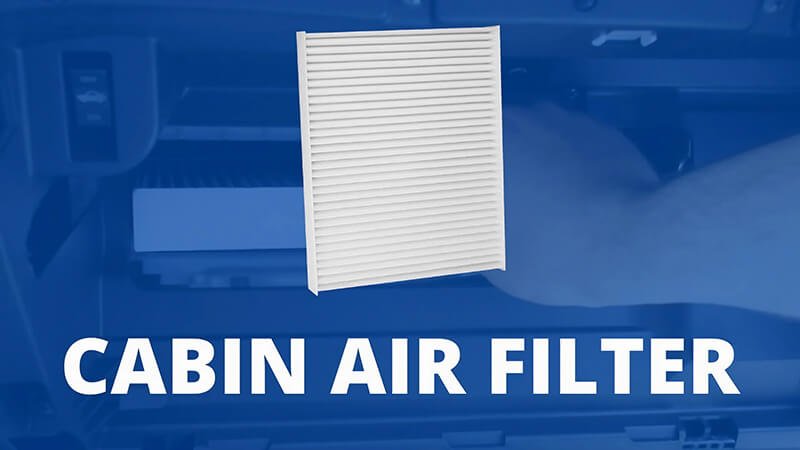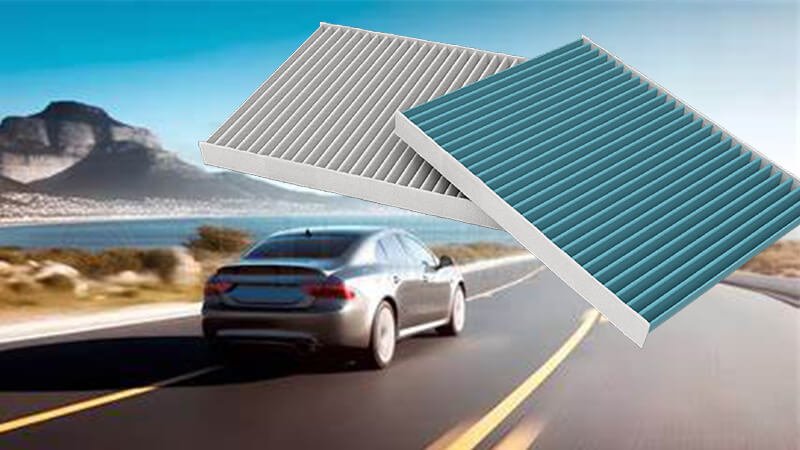Changing your car's air filter might seem like a small task. But if you ignore it, you’ll end up with a car that gulps fuel, loses power, and wears out faster. Many buyers only consider the part cost—they miss the bigger picture.
The total cost of changing a car air filter includes more than just the part—it depends on the filter’s lifespan, labor cost, and its effect on fuel efficiency and engine performance.
A fleet customer of ours once complained about increasing fuel costs. After inspecting their filters, we found they were clogging every 12,000 miles. We replaced them with our high-flow filters. Better airflow led to fewer replacements and lower fuel use. They signed a full-year supply contract right after.

How much do car air filters cost to replace?
Most people just Google the price of a filter. But there’s more to it. Cheap filters might look like a good deal. But if they need to be swapped out more often, you're paying more over time.
On average, replacing a car air filter costs between $20 and $75 for the part, and up to $50 for labor, depending on your location and the type of car. But high-quality filters offer better value over time due to their longer lifespan and fuel savings.
Why does the price vary?
| Factor | Impact on Cost | Example |
|---|---|---|
| Filter Type1 | OEM filters cost more | $50 vs $25 aftermarket |
| Engine Design | Complex access raises labor | Some engines take 30+ mins |
| Material Quality2 | Better filters last longer | Our filters last up to 30,000 mi |
| Brand & Warranty3 | Premium brands cost more upfront | Includes performance guarantee |
Let me break this down with a real example. I had a client who chose $15 filters for their delivery vans. After 12,000 miles, the filters were clogged. Replacement labor took 30 minutes each. We upgraded them to our Runex high-flow filters at $45 apiece. These lasted 30,000 miles. Less downtime. Fewer mechanic visits. Over a year, they saved over $2,000 in total.
Buying the cheapest part is not the cheapest solution. You’ve got to zoom out and look at total cost.

Is it worth changing the air filter in a car?
It absolutely is. Many car owners delay replacing the air filter because the engine still “sounds fine.” But they don't realize what they're missing: performance, fuel savings, and long-term protection.
Yes, changing the air filter regularly is worth it. It helps maintain engine efficiency, saves fuel, and extends engine life. A dirty air filter can reduce airflow, causing the engine to work harder and burn more fuel.
Why performance suffers when air filters clog
| Problem | Cause | Impact |
|---|---|---|
| Reduced airflow | Dust buildup | Less combustion efficiency |
| Fuel waste | Engine overcompensates | Lower MPG |
| Engine wear | Poor filtration | More dirt enters engine |
| Acceleration lag | Low oxygen intake | Slower throttle response |
One of our clients—a mid-sized fleet operator—saw fuel efficiency4 drop by 8%. After testing, we traced it back to clogged filters5. We ran a side-by-side trial: stock filters vs. Runex high-flow filters6. The result? 10% better fuel economy, fewer replacements, and smoother idling. They called it “an invisible upgrade with visible gains.”
So yes, it’s worth it. But only if you pick the right filter.

How long does it take to replace a car air filter?
Many people assume replacing a car air filter takes an hour or more. That’s not true for most cars. If you know what you’re doing, it’s a five-minute job. But the location and filter type matter.
Replacing a car air filter usually takes 5 to 15 minutes. Some vehicles need basic tools, while others have easy-snap covers. More complex designs may require longer service time.
How long it takes depends on three things:
| Vehicle Type | Access Difficulty | Time to Replace | Notes |
|---|---|---|---|
| Standard sedan | Easy | 5-10 minutes | Filter box on top of engine |
| SUV / Truck | Moderate | 10-15 minutes | Might need tools |
| Sports models | Hard | 15-30+ minutes | Filter may be behind bumper |
In my own workshop, I’ve timed our techs. A Corolla air filter7 takes under 5 minutes. A BMW 3 Series needs about 20. But if the filter is placed in an awkward location, labor cost goes up.
One customer complained about being charged $60 for air filter labor. When I checked, his car had a hidden airbox under the battery. It took 40 minutes. He wasn’t overcharged—he was just unaware of the complexity.
So yes, replacement is quick—but always check your car’s layout.

Can I drive my car with a bad air filter?
Technically, yes—you can. But that doesn't mean you should. Driving with a bad filter won't cause instant failure, but over time, it’ll chip away at your car’s health.
Driving with a dirty air filter can lower fuel efficiency, increase emissions, and shorten engine lifespan. It may not stop your car immediately, but it causes silent damage over time.
What happens when you keep driving?
| Issue | Cause | Consequence |
|---|---|---|
| Poor MPG8 | Reduced oxygen for combustion | Higher fuel costs |
| Engine misfire9 | Inconsistent airflow | Rough driving, check engine light |
| Increased emissions10 | Incomplete fuel burn | May fail emissions test |
| Dirt inside engine | Clogged filter lets dust through | Faster engine wear |
One client ignored filter changes in their work trucks for over 30,000 miles. When we opened the air intake, we found dust coating the throttle body. They ended up replacing it for $450. A $30 filter could have prevented that.
Another company thought they were saving money by stretching replacements. But their fuel bill said otherwise. Bad filters lead to inefficient combustion, which hits your bottom line slowly but surely.
The bottom line? Don’t wait until it’s “bad enough.”

Conclusion
Replacing your car’s air filter 11 is a small step with a big impact. It doesn’t cost much, doesn’t take long, and protects your engine while saving fuel. But the real trick is knowing which filter to choose. High-performance filters like the ones we make at Runex Auto last longer, flow better, and reduce downtime. Whether you're running a fleet or managing procurement for a distributor, the right filter isn’t just a part—it’s a strategy.
、
-
Learning about filter types can help you understand the cost implications and performance differences for your vehicle. ↩
-
Understanding material quality can help you choose filters that last longer and save money in the long run. ↩
-
Exploring brand and warranty insights can guide you in making informed purchasing decisions for better value. ↩
-
Exploring this resource will provide insights into how enhancing fuel efficiency can save costs and reduce environmental impact. ↩
-
Understanding the effects of clogged filters can help you make informed decisions about maintenance and upgrades for better performance. ↩
-
This link will explain the benefits of high-flow filters, including improved performance and fuel economy, essential for fleet operators. ↩
-
Understanding the costs associated with air filter replacement can help you budget better and avoid surprises at the mechanic. ↩
-
Understanding the causes of poor MPG can help you save on fuel costs and improve vehicle efficiency. ↩
-
Learning about engine misfires can help you diagnose issues early and avoid costly repairs. ↩
-
Exploring the effects of increased emissions can raise awareness about environmental impact and vehicle maintenance. ↩
-
Finding the best auto air filter from Runex Auto, clicking this link to get your best peoduct for your business. ↩













